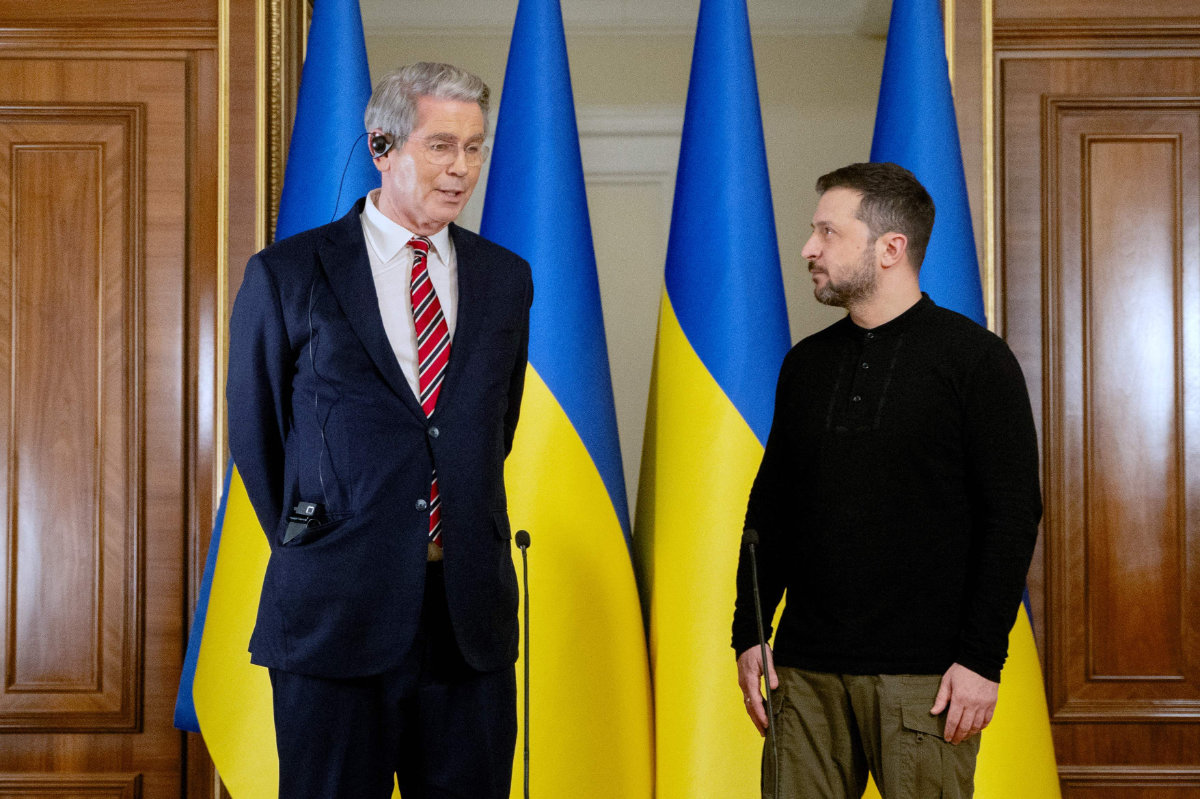UNITED NATIONS: They gathered at the United Nations surrounded by unsettling warnings of an escalating conflict that could engulf the Middle East and further shatter international relations that are based on “multilateralism” — nations working together and sharing power. A week later, world leaders headed home with the prospect of a broader war intensifying and global divisions front and center, not only in the Mideast but elsewhere.
There was no expectation of major breakthroughs in the public and private meetings at the annual UN General Assembly meeting of presidents, premiers and other leaders. There rarely is. But this year was especially grim, with no end in sight to the three major conflicts in Gaza, Ukraine and Sudan, and Israeli military action in Lebanon escalating.
UN Secretary-General Antonio Guterres’ warning that multilateralism needs to be brought back “from the brink” added to the gloom, along with speech after speech decrying failures to tackle climate change and address growing inequalities between rich and poor nations, and warning of artificial intelligence with no guardrails and the potential of killer weapons with no human control.
General Assembly President Philémon Yang concluded the weeklong, high-level meeting Monday afternoon, calling it “particularly tumultuous” and pointing to the “violent conflicts” that are raging.
“This is, unfortunately, not an exhaustive list of the crises and conflicts affecting member states of the United Nations,” he lamented.
Parts of the world are broken
There was no disagreement that multilateralism is broken, that this founding principle of the United Nations – established in 1945 on the ashes of World War II — needs urgent resuscitation to deal with the challenges the world faces today.
One example: During the very hour on Friday when Israeli Prime Minister Benjamin Netanyahu told the General Assembly that his country genuinely wants peace — a goal stressed by virtually every leader — Israeli warplanes were bombing areas around Beirut in a lethal barrage.
In the last few days, Yang said, the world has seen “an extremely dramatic escalation” between Israel and Hezbollah in Lebanon that risks war in the entire Middle East. “As we speak, peace in the Middle East is hanging delicately on a shoestring,” he warned..
UN spokesman Stephane Dujarric said this year’s meeting of leaders – with its marquee speeches known in UN-speak as the “general debate” – took place at “a very serious and a very intense time.”
“The world doesn’t stop for the general debate,” he told reporters Monday. “So we were focused very much on what member states said, but we continue to be very much focused on what is going on in the world outside of this building.”
There was one positive development welcomed by Secretary-General Antonio Guterres and many leaders: The adoption of a “Pact for the Future” at a summit just before world leaders began their addresses to the General Assembly. The 42-page blueprint aims to bring the 193 UN member nations together to meet today’s challenges, from climate change and artificial intelligence to escalating conflicts and increasing inequality and poverty.
It challenges leaders of countries large and small, rich and poor, to turn promises into actions. Whether that happens remains to be seen. Yang, the assembly president, said his office has already instituted “an awareness-raising campaign” to spur implementation.
Screeds against selfishness abounded
In an illustration of the blend of woe and weary hope that percolated through the gathering, Burundi’s foreign minister, Albert Shingiro, on Monday decried an international community where “most of us act like we were alone in the world, like others didn’t exist or didn’t count.”
Still, he said, the consensus on the Pact for the Future “shows that multilateralism is not dead and buried.”
From the vantage points where leaders of smaller or less powerful nations sit, the UN can’t change the world without changing itself. Founded with 51 member countries, it now has 193, and many feel included only to a point.
“We must ensure that global institutions give developing countries, especially small, vulnerable ones like my own, seats at the tables of decision-making,” said Barbados’ prime minister, Mia Mottley. “The anger and mistrust of our citizens in institutions, in leaders and in multilateralism and its processes which exclude, while yielding much talk and little action, is very real.”
Nobel peace laureate Muhammad Yunus, head of Bangladesh’s interim government, said “time demands new attitudes, new values, new compacts, across communities and countries.”
“I believe, the world needs to engage on a shared vision of ‘three zeroes’ that we can materialize together, targeting zero poverty, zero unemployment, and, zero net carbon emissions — where a young person anywhere in the world will have opportunities to grow, not as a job seeker but as entrepreneur,” he told the assembly.
During the global gathering, the assembly heard from 190 countries – all but Brunei, Myanmar and Afghanistan. The speakers included 71 heads of state, 42 heads of government, six vice presidents and crown princes, eight deputy prime ministers, 53 ministers, three vice-ministers and seven heads of delegations. Usually, the UN Security Council holds one meeting during the high-level week, but this year the council met about a half-dozen times because of the global conflicts and crises.
For all the alarm, leaders here are politicians, and many made a point of appealing at least somewhat to optimism. Perhaps none stressed it as much as US President Joe Biden, making his last speech at the annual meeting after more than a half-century in public life.
He noted that humanity has brought to a close some of the seemingly intractable threats, conflicts and injustices that beset the world when he was elected as a senator in 1972, from the Cold War to apartheid in South Africa.
“Things can get better,” Biden said. “We should never forget that.”






























